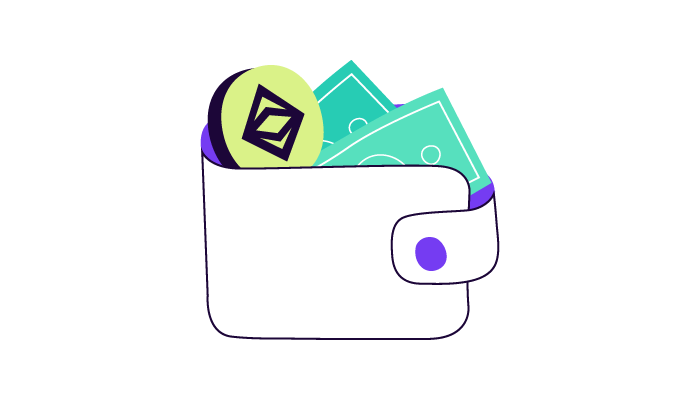Cypherpunks rejoice weve finally added Ethereum to our expanding portfolio of cryptocurrency wallets! The new Wirex Ethereum wallet allows you to buy, sell and store Ether (ETH). Exclusive to Wirex, you can also instantly convert it into GBP, EUR or USD to spend in-store and online using your Wirex Payment Card.
A brief history
Ethereum launched in 2014 following an $18 million ICO. Its creator, Russian-Canadian Vitalik Buterin, was only 19 at the time. Buterin was a programmer and child prodigy who emerged onto the Bitcoin scene in 2011 by writing crypto and blockchain articles online. He was paid in BTC (between 3 and 5 BTC per article), and was able to use these earnings to fund the projects that made his name.
In 2012, Buterin co-founded Bitcoin Magazine with fellow crypto pioneer Mihai Alisie. Buterin believed that decentralized technologies [were] a natural fit for many kinds of applications that currently have a central controller, but felt that the Bitcoin blockchain was limited. He studied the architecture of existing blockchain applications and began work on what would eventually become Ethereum.
The Ethereum white paper was released in late 2013 and proposed a decentralised platform that runs smart contracts. It boasted all the functionality of the Bitcoin blockchain, but with wider capabilities and applications. Today, the market cap value of Ethereum exceeds $48 billion and a single ether token is worth approximately $477.

Whats different?
Buterin recognised the limitations of the Bitcoin blockchain, describing it as trying to kind of explicitly support each [use-case] in a sort of Swiss army knife protocol. Satoshi Nakamotos Blockchain disrupted the online payment industry, but was a purely financial instrument. In order to add new applications and additional functionality, developers had to build a new blockchain from scratch.
Ethereum represents the second generation of blockchain technology. Recognising the inherent vulnerabilities of storing information online, Buterin aspired to shake up the third-party hosting and cloud services industries. He replaced the original blockchain code with a Turing complete language (a programming language that allows a computer to emulate various CPUs) which allowed developers to build their own applications with different functionalities into the platform. Compared to the narrow functionality of the Bitcoin blockchain, Ethereum is like a decentralised app store - an internet-based platform on which innumerable, diverse new applications can be built.

The Hack and Fork
Smart contracts, Ethereums defining feature, [enable] developers to build and deploy decentralised applications. They work in the same way as traditional contracts, but they self-execute - the terms of a contract are employed as each condition is met. Decentralised Autonomous Organisations (DAOs) are organisations that are run by smart contracts on blockchains like Ethereum. Members of a DAO own tokens that act as voting rights (rather than equity shares) within the organisation, which means that they function with no centralised authority.
In May 2016, a DAO imaginatively called The DAO formed to act as a venture capital fund for the decentralised digital currency sphere. It allowed people to pitch their ideas in return for potential funding. The project raised 12.7 million Ether (approx. $150 million), making it the highest-value crowdfunding project ever at the time. However, in June 2016, an enterprising hacker drained 3.6 million ETH, totalling $70 million at the time, from the DAO.
Ethereum developers were faced with a choice:
- Hard fork (create a new currency protocol) and void the transaction
- Concede the loss
Although it may seem like a simple decision, the first option would void the Ethereum networks decentralised status as a cost of reclaiming the stolen funds almost unthinkable in an industry where code is law. After much debate, Ethereum developers decided to hard fork (a point of continued contention), splitting the blockchain into Ethereum (the hard forkers) and Ethereum Classic (the minority fork opposition).
Ethereum at Wirex
Wirex founder Pavel Matveev says the decision to add an ETH wallet to the Wirex roster was an easy one. Ethereum represents the second most valuable cryptocurrency after Bitcoin and therefore the worlds biggest altcoin making the development of the Ethereum Wallet a priority for Wirex.
The addition means that Wirex users are now spoiled for choice with four cryptocurrency wallets at their disposal Bitcoin, Litecoin, XRP and Ethereum.
Heres what you can do with the new Ethereum wallet:
- Easily convert ETH to fiat and spend with your Wirex card*
- Buy, sell, exchange and deposit ETH in-app
- Link the wallet to your debit or credit card
- Exchange 50 supported altcoins with ETH
- Exchange between USD, GBP, EUR, BTC, LTC and XRP
- Enjoy free crypto transactions between Wirex users
*Only available to EEA users
Full access to the innovative features on the Wirex app is only available to verified EEA users. So, if you want to enjoy the benefits, get verified now. It only takes two minutes - all we need is proof of ID and a selfie.
New to Wirex? Keen to get your own slice of the worlds most valuable altcoin? Download the app for free from the App Store or Google Play. And, to further celebrate the launch of our ETH wallet, we've teamed up with CryptoDisrupt to donate 20ETH to a charity chosen by you. You can nominate a charity of your choice by September 11; the winning charity will be selected randomly on September 14.


